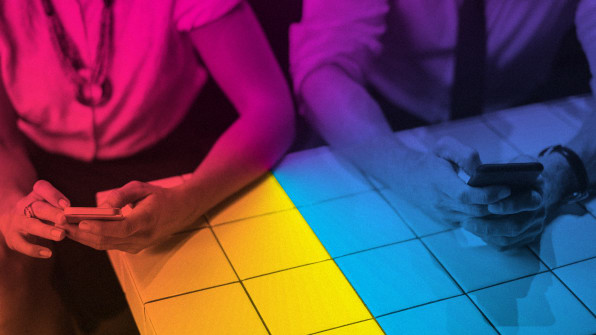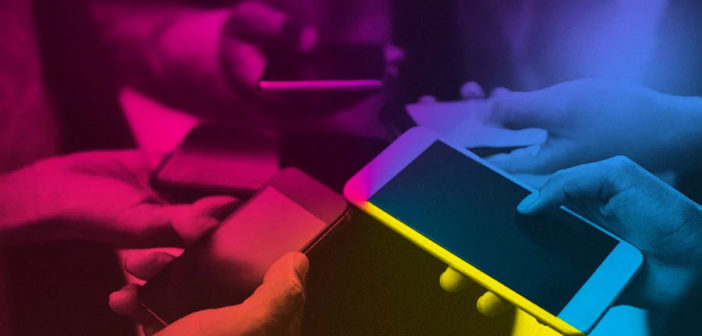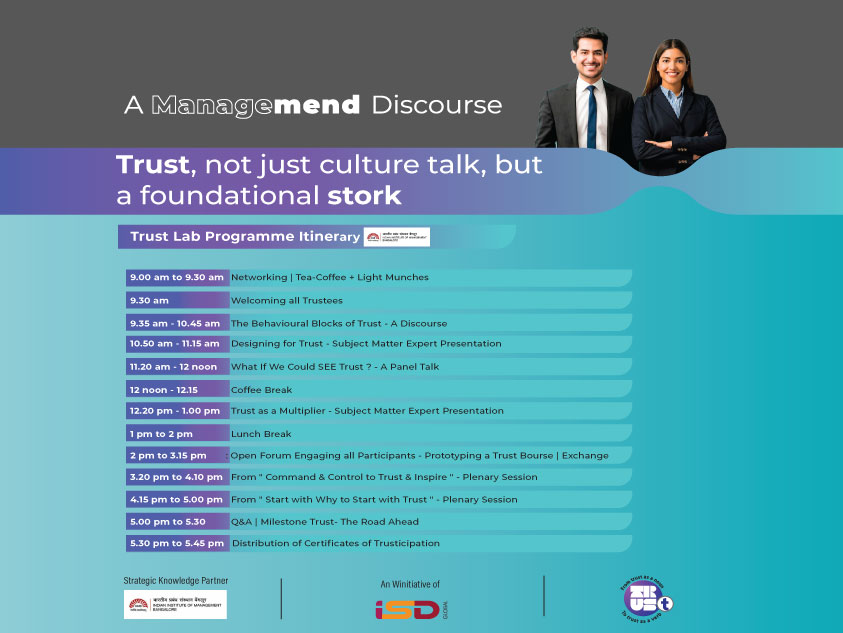Social media companies play on biology and psychology to enslave us. But we have the tools to defeat them, write the authors of a new paper on the subject.
Do you feel like you’re addicted to Facebook? You’re just being human.
That’s according to a new research paper that argues for a new way of thinking about our phone addiction. The authors claim that hundreds of thousands of years of evolution made us social in order to survive–and social media simply is driving this deeply ingrained human behavior into overdrive. This isn’t actually all that bad, they say, if you follow two basic rules.
But before getting to their recommendations, let’s consider the work of the authors, Samuel P. L. Veissière and Moriah Stendel, from McGill University in Montreal. They analyzed so-called screen addiction from a purely evolutionary perspective and concluded that smartphones are really an “unhealthy platform for a healthy impulse.” Evolutionary, anthropological, and behavioral sciences, they claim, clearly demonstrate that our species became successful precisely because of our need to seek information and to connect with and learn from peers. As part of this learning, humans also compare themselves to each other constantly. In the past, this comparison–finding and creating common patterns–made us form groups and eventually cultures.
From that point of view, it makes sense to conclude that smartphones and social networks are not negative per se. “[T]here is nothing inherently addictive about mobile technology,” the authors claim. Our socially oriented brains trigger dopamine injections–a brain chemical that makes us feel good–when we connect to others and learn about them. This is what actually hooks us on our phones in the first place. In fact, they claim, these technologies were not noxious, to begin with. At first, they were extraordinary helpful tools to make us feel better by being more social in a more efficient way.
Things got bad later, when Facebook–along with Apple, mobile game developers, and many other companies–implemented random reward systems in their user interfaces that capitalize on this natural need of ours to connect. Veissière and Stendel claim that these companies added elements to their user experience that were designed to pump up the addiction, leading to depression and social anxiety.
In short, the tech industry used behavioral science to corrupt a technology that can be positive for human beings into something that turns them into “anti-social, self-obsessed zombies.”

Fortunately, the authors offer two simple and very logical remedies–and none of them involve throwing away your phone or cutting social networking completely. That would go against our own nature (and would just be silly). Instead, all of their advice is rooted in the Buddhist principle of feeding your “hungry ghosts,” a spirit that has an endless hunger for food. Instead of being a glutton and constantly feeding your hunger for social connection, just “eat” less.
Thus, the first step is to eliminate the reward system that turns you into a zombie: Disable all notifications. The bings, rings, and the red dots. Those are Facebook’s bells to your Pavlovian dog. If you enable notifications, you are giving these companies the ability to enslave your brain, triggering dopamine hits by associating those sounds and visual cues with random rewards. As an alternative, just check your phone two or three times during the day to see who liked your photos and commented on your posts, or what your friends are doing.
Their second recommendation: Don’t measure yourself against the “highlight reel” of other’s people lives. You shouldn’t take people’s lives on Facebook seriously because they are slanted to the positive side. Instead, try to remind yourself that everyone’s life is full of crap, just like yours. Just observe, learn, and, whenever possible, celebrate.
Veissière and Stendel believe that companies can also help curb addiction by prohibiting all work email, messaging, and any kind of business interaction after hours. This is something that France has already banned by law. In the United States, most don’t. So it’s up to you to implement that policy using your own behavior.
In the end, the authors claim, we can’t blame the smartphone dings, or even the companies that want to trap us in a vicious addictive circle of random rewards and punishments. We can’t whine, even if evolution clearly shows that we need social connectivity to thrive. We have the freedom to do whatever we want with those phones. I know because I followed those two remedies many years ago and I’ve been a lot happier ever since. My phone is a tool, not my master.
–
This article first appeared in www.fastcodesign.com
Seeking to build and grow your brand using the force of consumer insight, strategic foresight, creative disruption and technology prowess? Talk to us at +9714 3867728 or mail: info@groupisd.com or visit www.groupisd.com



